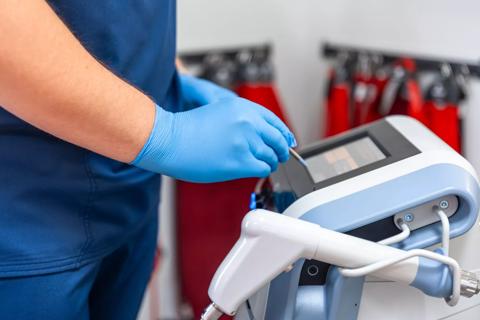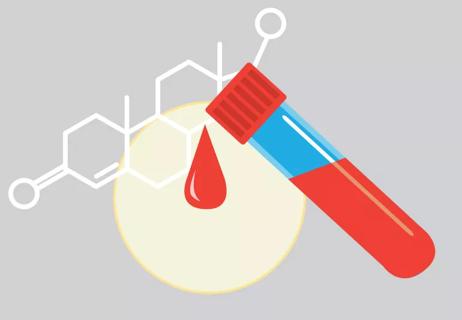Adjusting your diet to focus on plant-based, whole foods may improve erectile function

Listen up, guys! If you’re having bedroom performance issues with a certain body part, the solution doesn’t have to come from a little blue pill. It might just be a matter of adjusting your diet.
Advertisement
Cleveland Clinic is a non-profit academic medical center. Advertising on our site helps support our mission. We do not endorse non-Cleveland Clinic products or services. Policy
That’s because what you eat and drink can either help boost erectile function or contribute to erectile dysfunction (ED), says urologist and men’s sexual health specialist Mark Paulos, MD.
So, what should you eat to firm things up? Let’s set a menu with Dr. Paulos.
Getting and maintaining an erection is all about blood flow. Think of it like a hydraulic system: If pressurized fluid isn’t moving into your machinery below the belt, you’re not going to get the lift you want.
“Erectile dysfunction in the majority of men over age 40 involves a circulation problem,” explains Dr. Paulos. “It’s basically poor blood flow to the penis.”
What you eat has a significant effect on how well blood moves through your body. A healthy diet helps keep your arteries clear and open. A less healthy diet, on the other hand, can cause plaque buildup that gums up the works.
Most of the time, this concept is used to explain the importance of eating a heart-healthy diet to minimize the risk of cardiovascular disease. But what’s “heart-healthy” is also “penis-healthy.”
“Erectile dysfunction can be caused by many of the same issues — high blood pressure, high cholesterol, weight gain — that contribute to cardiovascular risk,” says Dr. Paulos. “Diet is a big factor in all of those things.”
Advertisement
No single “magic” food guarantees a stiffer erection.
“It’s more your pattern of diet,” clarifies Dr. Paulos. “When we look at the research, we see that diets emphasizing a plant-based, whole foods approach seem to work best for erectile function.”
Eating plans like the Mediterranean diet and DASH diet focus on foods that are good for penis health. (They’re beneficial for your heart and overall health, too, of course.)
But certain foods deserve special mention. Here are nine.
Watermelon is often called “Nature’s Viagra,” given that it’s rich in citrulline. This amino acid is a building block of nitric oxide, which works to relax and dilate blood vessels like a certain blue pill often prescribed for ED.
The lycopene found in watermelon also offers nitric oxide-boosting effects and has been associated with improved sperm production and vascular health. It’s an anti-inflammatory, too.
Nuts, such as almonds, pistachios and walnuts, are rich in another amino acid known as L-arginine. Your body converts L-arginine to nitric oxide to promote the relaxation of blood vessels and improve blood flow to fuel erections.
“They’re very good for healthy circulation,” says Dr. Paulos.
Know what else can increase nitric oxide production while also providing an anti-inflammatory effect? Omega-3 fatty acids, which are abundant in salmon, herring and other fish.
Omega-3s can also help reduce blood pressure and cholesterol to improve circulation.
Famed philanderer Giacomo Casanova supposedly ate oysters by the dozens to fuel his promiscuous ways. For the record, though, there’s little to no scientific evidence showing that eating mollusks offers an aphrodisiac effect.
But oysters are a good source of omega-3s, zinc, magnesium and vitamin B12, which may help boost testosterone production and improve circulation to help with ED, notes Dr. Paulos.
Catechins in green tea are powerful antioxidants that’ve been shown to improve blood pressure and cholesterol levels, according to Dr. Paulos. Intake is associated with lower cardiovascular risk, which — as we’ve mentioned — can help with ED.
Dark chocolate includes a little something extra known as flavanols. This plant-based chemical compound increases blood flow, which — as we keep mentioning — is what you want for a firm erection.
But before you hit the candy store, note that this benefit is most associated with dark chocolate. Don’t expect the same results downstairs from nibbling on bars of milk chocolate or white chocolate.
Make sure you get your daily servings of fruit if you want to maintain erectile function. Researchers found that men who regularly eat antioxidant-rich fruit are 19% less likely to experience erectile dysfunction. Top sources include:
Advertisement
Don’t skip the salad with dinner if you’re focused on sexual health, fellas. That’s because nitrates in leafy greens can protect against ED by increasing your body’s production of nitric oxide. (Sound familiar?)
Solid options include arugula, parsley, spinach and various types of lettuce.
The plant compound that gives garlic and onions their potent smell can also work wonders down low. The compound, known as allicin, acts as a vasodilator to widen blood vessels and help power an erection.
“Garlic and onions have some really great anti-inflammatory properties, too,” says Dr. Paulos.
While some foods may help stiffen your erection, others may create unwanted floppiness.
“Eating an anti-inflammatory diet is only half the story,” says Dr. Paulos. “You also want to do your best to limit pro-inflammatory foods because we know those work against better blood circulation.”
Foods that fall on that list include:
Poor dietary choices also increase your risk of high blood pressure, high cholesterol and obesity — all factors that can contribute to ED.
Advertisement
While alcohol may lower inhibitions, it may also lower … well, you know.
“Alcohol depresses your central nervous system,” explains Dr. Paulos. “It inhibits the messaging coming from your brain, which can prevent the signals that trigger an erection from getting through.”
Long-term alcohol use can eventually cause nerve damage (or neuropathy) that leads to persistent ED.
Adjusting your diet and making other lifestyle changes (such as exercising more) can improve erectile function and sexual performance, states Dr. Paulos. Results can come relatively quickly, too.
“You could start seeing improvement within a few weeks to a few months,” he says. “If your circulation gets better, your erections should get better. It really can be that simple.”
Advertisement

Sign up for our Health Essentials emails for expert guidance on nutrition, fitness, sleep, skin care and more.
Learn more about our editorial process.
Advertisement

Here’s what you need to know about ED, which most men experience to some degree during their lives

Research shows the virus can affect your ability to get or maintain an erection

Psychological factors are the main cause of ED in younger men, followed by medications and a range of health conditions

Early results show the procedure may help resolve mild to moderate ED

Despite assumptions, there really isn’t a one-to-one connection between the conditions

Learn the many causes of erectile dysfunction

People with PKU need to avoid high-protein foods, like meat, dairy, legumes and whole grains

Olive oil is high in heart-friendly unsaturated fats

Even small moments of time outdoors can help reduce stress, boost mood and restore a sense of calm

A correct prescription helps your eyes see clearly — but as natural changes occur, you may need stronger or different eyeglasses

Both are medical emergencies, but they are very distinct events with different causes